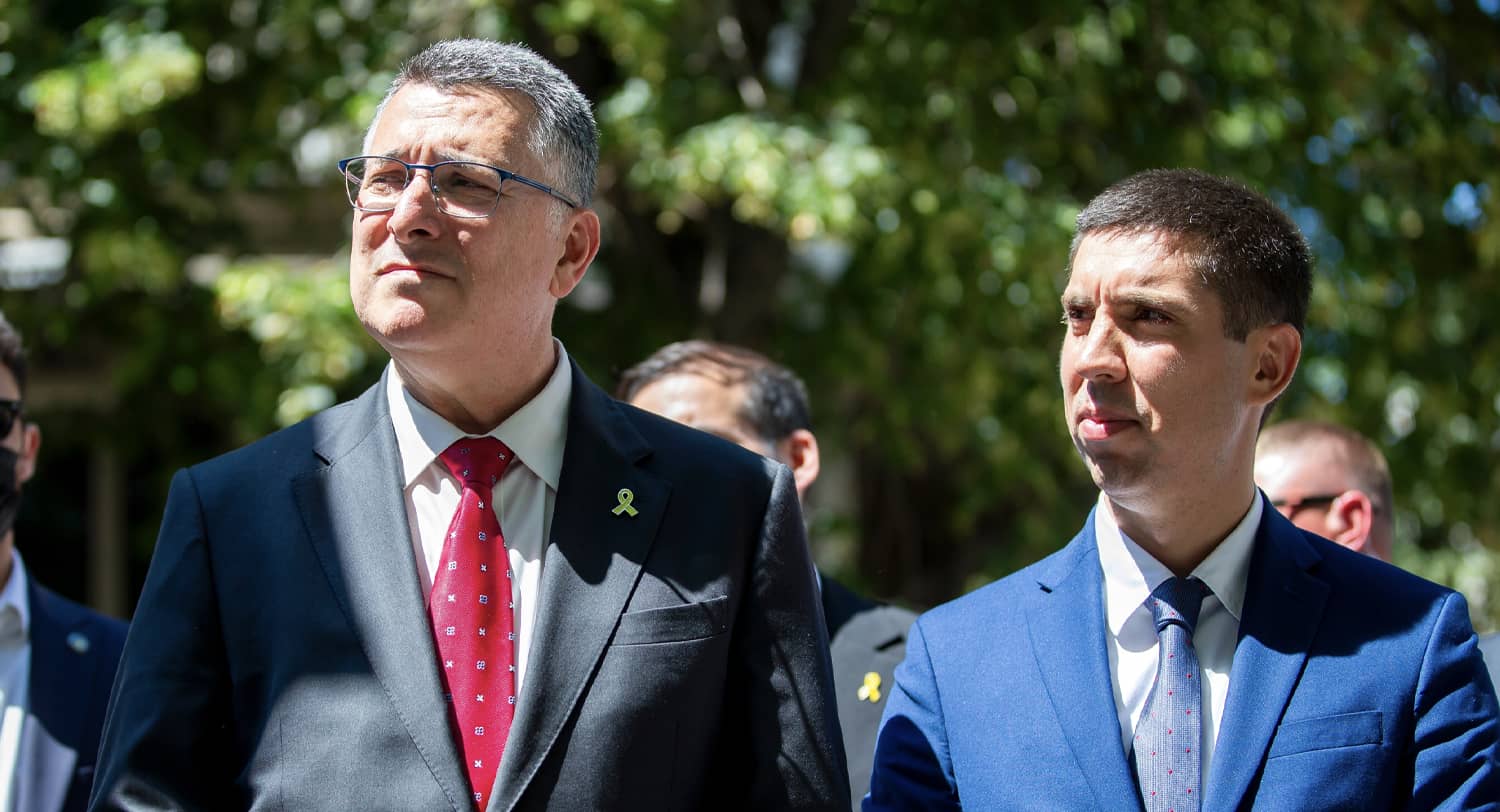On December 15, 2024, Israel announced it would temporarily close its embassy in Dublin, owing to “the extreme anti-Israel policies of the Irish government,” and open an embassy in Chișinău, Moldova. What is most noteworthy in this Israeli move, suspending relations with one small country on the margins of Europe and investing in another, is the remarkable emergence of relations with Moldova.
Current Ties
Israeli foreign minister Gideon Sa’ar has visited Moldova twice in 2025. On the second visit, in July, Sa’ar and his Moldovan counterpart announced the launch of a Moldovan-Israeli Intergovernmental Commission, both to encourage trade and investment and to serve as an umbrella for Israeli aid in cyber defense and internal security.
Moldava is usually ranked as the poorest country in Europe. Its main export to Israel is labor, in the form of about 15,000 Moldovan citizens who are legally employed mostly in the fields of construction and home care.
But Moldova is important in other ways. After Russia’s invasion of Ukraine, Moldova has resettled more than 128,000 Ukrainian refugees according to UN figures, including thousands of Jews who have bolstered the small Moldovan Jewish community. Moldovans hosted Ukrainian refugees, including entire families, in their homes, given the lack of official support provided by local authorities or international organizations.
Diplomatic signals from Moldova also preceded the Israeli foreign minister’s 2025 visits. In 2019, Prime Minister Pavel Filip announced that the country would move its embassy from Tel Aviv to Jerusalem (joining the US and a handful of others, including Kosovo). The decision was later retracted following pressure from several Arab states. Even so, Moldova and the three Baltic countries are the only former Soviet states that have not recognized a Palestinian state.
Moldova’s pro-Israel approach is also visible at the UN. Moldova generally abstains or votes against the numerous anti-Israel anti-Jewish resolutions, again despite pressure, often from its European partners.
In 2022, Moldova appointed as its ambassador to Israel the historian and diplomat Alexandr Roitman, who has Jewish origins and is fluent in Yiddish and Hebrew. Some Moldovan sources attribute the development of bilateral relations largely to Roitman.
Historical Links
During his February 2025 visit, Gideon Sa’ar revealed that his grandfather was originally from Bessarabia, then a governorate of the Czarist empire with Kishinev (now Chișinău) as its capital. When his grandfather returned in 1962 to visit his birthplace, he told Sa’ar he couldn’t recognize the city owing to its Soviet transformation. Sa’ar praised Moldova’s Holocaust commemoration policies and participated in the inauguration of a commemorative plaque, a “stumbling stone,” in memory of Leah Svartzman, who was born in Chișinău in 1918 and deported and killed in Transnistria in 1942 by the army of Romanian dictator Ion Antonescu.
Chișinău was an important Jewish urban center in the 20th century, and a large part of the Jews of the former Bessarabia were murdered by the Romanian allies of the Germans during World War II. In the first days of the war, during the pogrom in Iași, the center of the Moldovan region bordering Romania, between 13,266 and 14,850 Jews died, some executed on the spot, others suffocated by thirst, hunger and lack of air in what were called “death trains.”
Sa’ar also urged the preservation of the memory of the antisemitic pogroms of 1903 and 1905, inspired by Russian Czarist authorities, that sparked worldwide protests at the time (and led to Jewish emigration to the US and the then Ottoman-held territory of historic Israel).
A Future Friend of Israel in the EU
The eventual accession of the Republic of Moldova to the EU would strengthen its bloc of Israel supporters that includes Hungary, Germany, the Czech Republic, Slovakia and Austria.
Ukraine and Moldova have jointly opened EU accession negotiations, and the governments of the two countries have repeatedly expressed their hope that the accession of the two countries will take place simultaneously. Moldova, whose security currently depends on the resistance of the Ukrainian military, has declared that its decoupling from Ukraine would be a mistake.
However, several EU members (Hungary and Slovakia) oppose Ukraine’s accession while others, Bulgaria and Romania, want to decouple Moldova from Ukraine in the accession negotiations. Moldova is better positioned than Ukraine in many respects. The Moldovan state grants broad rights to its national minorities, especially to Turkic-speaking Gagauz in the south of the country, but also to the country’s Russian-speaking minority. In contrast, Budapest is not at all satisfied with the rights granted by Ukraine to the Hungarian minority in Transcarpathia. It appears that decoupling is the likeliest outcome.
Therefore, Israel’s investment in deepening relations with Moldova is a smart move for the Jewish state’s future alliances in the EU.
Constantin Dicusar is a journalist and historian from Molodava.

